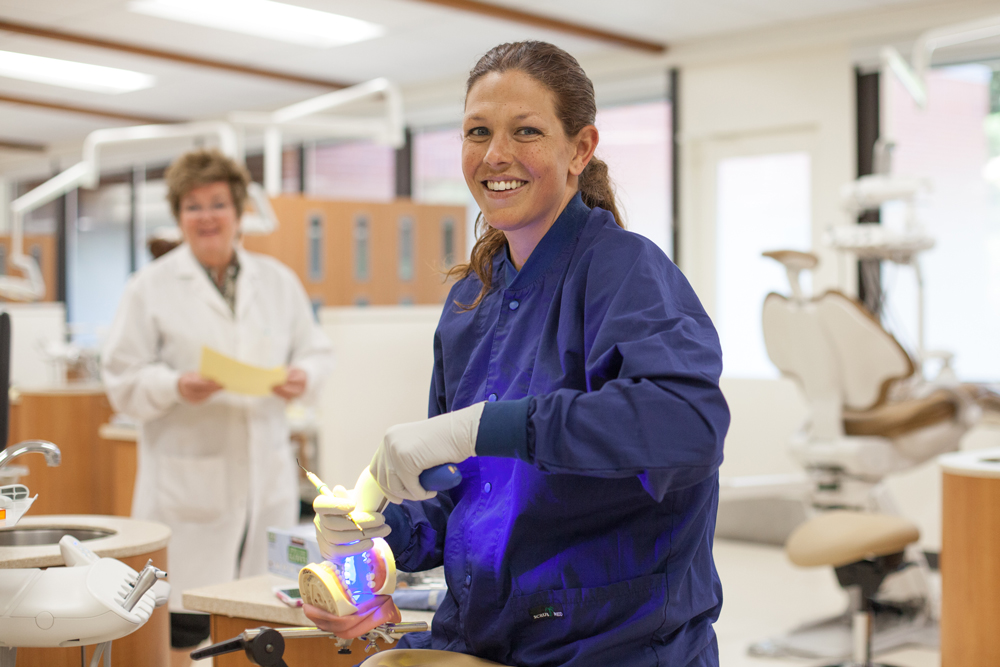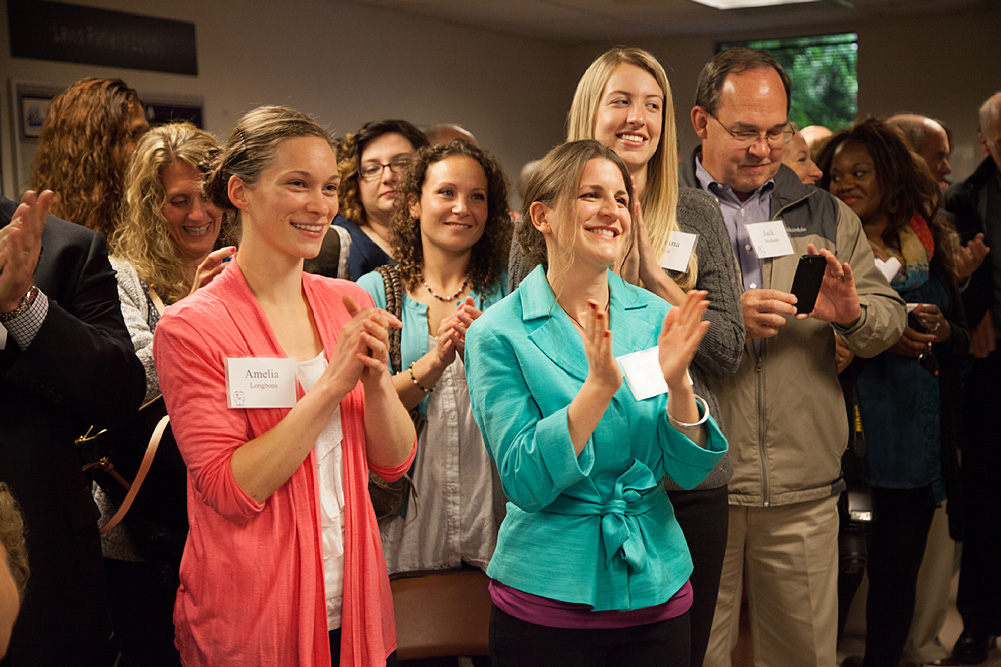Clark to offer its first bachelor’s degree

This has been a year of highlights for Clark’s Dental Hygiene program, including the opening of the Firstenburg Family Dental Hygiene Education and Care Center and now the introduction of a Bachelor of Applied Science degree.
The Northwest Commission on Colleges and Universities (NWCCU) has approved Clark College’s proposal to add the college’s first baccalaureate degree. Starting in the fall of 2015 the college will offer a Bachelor of Applied Science in Dental Hygiene.
The B.A.S. in Dental Hygiene will benefit both students and the community, according to Dr. Tim Cook, Vice President of Instruction at Clark College. He explained that this program opens up additional job opportunities to students, while adding very few additional courses to their degree plan. “Previously, students in the Associate of Applied Science program in Dental Hygiene were here for four or more years because of the requirements of the program,” Dr. Cook said. “Being able to offer this degree allows Clark students to earn a bachelor’s degree in the same time.” The new program builds on the current dental hygiene program, with an increased emphasis on research and educational methodologies. Because all dental hygiene curriculum is standardized by the Commission on Dental Accreditation (CODA), minimal changes to the A.A. program are required.
The new B.A.S. in Dental Hygiene is Clark College’s first baccalaureate degree. Students with an associate degree are typically employed in private practice offices or clinics. The bachelor’s degree provides opportunities for dental hygienists to work in dental sales, public health, and research. “Like many other healthcare professions, dental hygiene has experienced a gradual yet steady movement toward the bachelor’s degree as the desirable degree for entry-level professionals,” Dr. Cook stated.
The approval of this program caps off a year of highlights for the program, including the opening of the Firstenburg Family Dental Hygiene Education and Care Center. The $3.3 million renovation was funded by donations from a variety of entities including the Firstenburg Foundation, Roy and Virginia Andersen Endowment, M.J. Murdock Charitable Trust, John A. and Helen M. Cartales Foundation, and many others. Renovations of the space allow the program to serve more students and more patients – particularly children and underserved populations.
The addition of the B.A.S. in Dental Hygiene is part of a larger push to expand access to baccalaureate education in Washington State that began with the passage of HB1794 by the Washington Legislature in 2005. This bill, which included language allowing community and technical colleges to begin offering applied baccalaureate degree programs, was designed to meet the state’s goal of increasing the number of baccalaureate degrees earned in Washington to 42,400 by 2019. As of the fall of 2013, there are 11 colleges in the State Board of Community and Technical College (SBCTC) system offering 23 different applied baccalaureate degrees.
Applied baccalaureate programs are seen as a perfect fit for community and technical colleges because they fill the gap some employers are finding in filling jobs that require both technical proficiency and the skills that a baccalaureate degree typically provides. These degrees also broaden the range of jobs and promotion opportunities available to students, both key goals for community and technical colleges.
